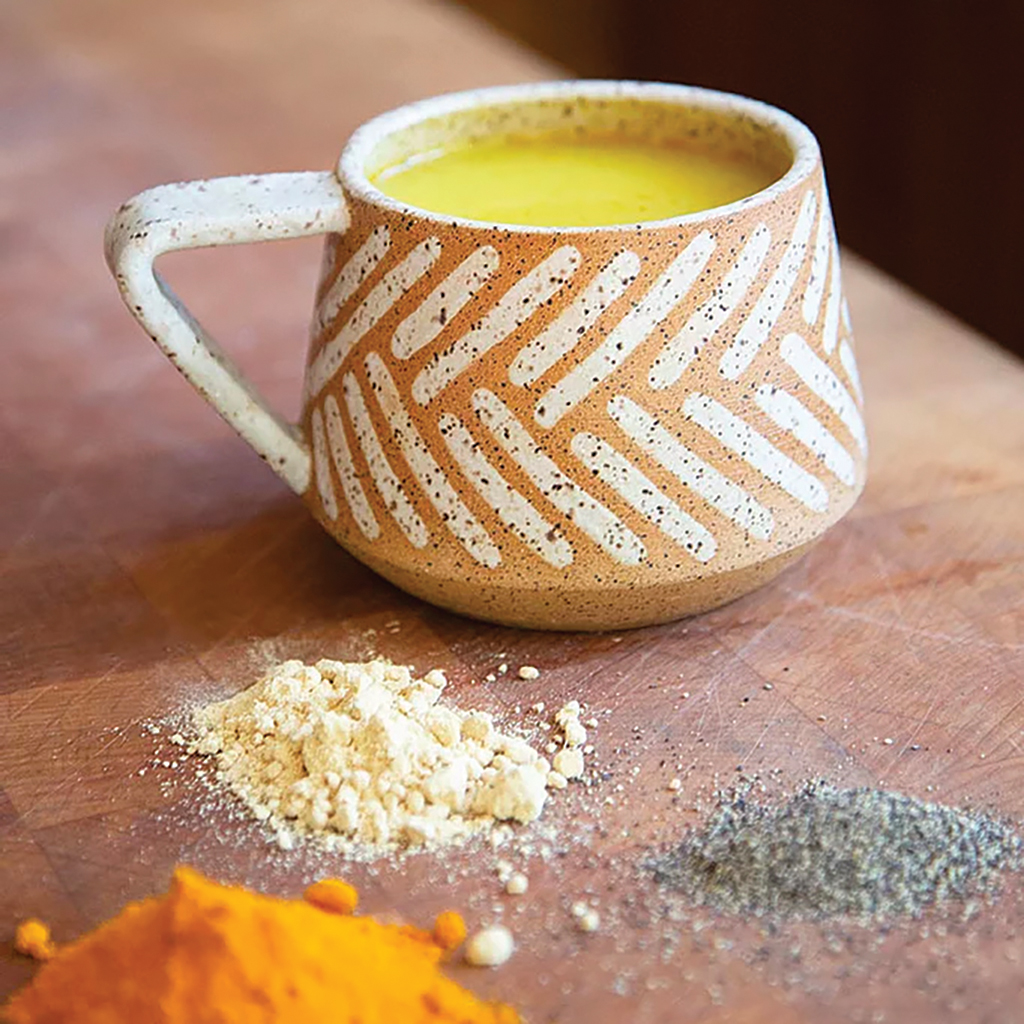Ever since the planting of the first potato in Idaho soil back in the mid-19th century, Idaho has enjoyed a long history of food and agricultural innovation. In the centuries since, the Idaho potato has seen everything from J. R. Simplot’s revolutionary frozen French fries at McDonald’s to present-day Idaho chef Lou Aaron coining the Ice Cream Potato. These days, the Idaho potato is still a state symbol, but groundbreaking food entrepreneurs are entering the scene with a wide variety of products. With more farmers’ markets, CSAs, and food events across the state than ever, innovative, often plant-based, and delicious food products are coming to dominate the Idaho food industry.
The Kula Connection
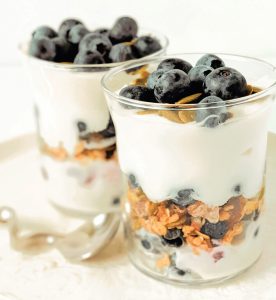
At 40 years old, Michelle Russell found herself overweight, ill, and unhappy. She first learned about the advantages of plant-based eating from a documentary, and quickly got on board. With her husband, she founded The Kula Connection, a Boise-based food community that produces plant-based cheeses, nuts, and other treats. “I wanted to make things that were actually capable of increasing your body’s wellness,” Russell said, describing her motivation for beginning Kula. “We were living in this dinky little apartment in Boise and I started culturing cheese on top of the water heater in my girls’ room.”
After developing her product, Russell faced challenges in working with the health inspector, finding kitchen space, and avoiding burnout. But she’s made it work and her products are now sold in specialty markets regionally.
Russell firmly believes in the benefits of her products, especially after watching her mother pass away from breast cancer and while supporting another friend with the same disease. Her non-dairy cheeses support gut health, avoiding the saturated fat of dairy cheese. Russell also understands the connection between food and mind. “That’s why our tagline is ‘good mood food,’” Russell said.
Russell’s goal in starting The Kula Connection ultimately involves “working with people to restore their health, to take a step beyond providing them a product that restores their health.” She hopes to teach her customers about the healing power of plants, just as she has personally experienced through her own journey with plant-based eating.
Kelsi’s Kitchen
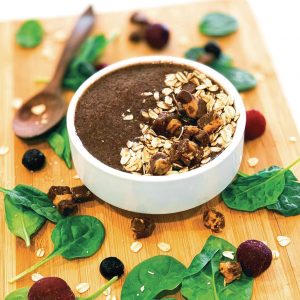
Kelsi Petersen has been preparing for Kelsi’s Kitchen her whole life. From a young age, she was attending culinary workshops with her mother, adopting a raw food diet, and even teaching healthy cooking classes to her community. One class, called Divine Desserts, taught attendees how to make healthier versions of their favorite treats, including chocolate. “We had people come to these classes, but they didn’t want to pay to do the work. They would always ask for the chocolates,” Petersen said. Petersen would grow up and move to Utah with her husband, but she made her way back to her hometown of Idaho Falls to raise her two sons.
Soon after moving back to Idaho, Petersen found herself looking for a new challenge. “I wanted to start something. People really liked these chocolates and I wanted to see what I could do.” So, she started Kelsi’s Kitchen, where she now makes healthy refrigerated chocolate treats with no refined sugar and only five ingredients. Offering a variety of flavors, Petersen hopes that she can appeal to customers who want a nutritious yet satisfyingly sweet option.
Only three months after starting Kelsi’s Kitchen in 2019, Petersen’s mother passed away due to ALS. The woman who had originally introduced Petersen to the world of nutrition and food was gone, but Petersen only lets it motivate her. “I want to continue what we did… I think one of the biggest challenges is feeling like you can really do it. You’ll never find out if you don’t try.” Today, Kelsi’s Kitchen donates 10 percent of proceeds to ALS research in honor of her mother.
Erth Beverage Co.

After decades of working in the food and retail industries, Sam and Eric Herrera were looking for something new. With a background in nutrition, Sam had been working for Whole Foods, while Eric, who attended culinary school, was working at a brewery in Boise. They decided to leave their jobs, combine their entrepreneurial spirits and creative minds, and start Erth Beverage Co. to produce nourishing and refreshing carbonated drinks to their community.
Eric’s knowledge of brewing from his time at the brewery was essential. During the early days of Erth, the couple would brew batches of their botanical sodas in one 31-gallon tank. Sam was printing the drink labels off of a home computer, sticking them on the sweaty soda bottles right before selling them at the farmer’s market, so that the sticker wouldn’t slide off. Even now, Erth is a little scrappy. “We don’t have any employees, it’s just us and a couple of friends,” Sam said. But that’s exactly what many of Erth’s customers like about them. Sam and Eric don’t take things too seriously.
And above all, Erth Beverage Co. values community. “That’s what we really want to do ultimately, is to include as many people in the community in Idaho as we can. Especially with COVID, we’ve realized how much stronger we are together,” Eric reflected. For Erth, the inclusion of community means incorporating Idaho-sourced ingredients, selling at local markets, and talking to as many people as possible about their products. While interactions with the community look a little different right now due to COVID-19, Erth is still managing to meet their customers’ needs during the pandemic, including efforts towards developing new flavors with immune-system-boosting properties.
Sun Valley Mustard
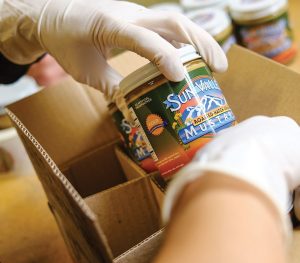
Josh Wells knows the food industry pretty well at this point. He took over Sun Valley Mustard from its previous owner in 2011, after he fell in love with the product. Back then, Wells didn’t know exactly what he hoped to do with the business – he knew that he wanted to keep Sun Valley Mustard alive and share the amazing condiment with others, but he didn’t have a concrete plan or end goal in sight. Wells quickly discovered many inefficiencies and hurdles in the grocery and food industry. Between the difficulty of attracting distributors, the expenses of demos in stores, and the steep manufacturing costs, Wells faced many challenges.
Nonetheless, Wells devoted himself to Sun Valley Mustard. Within the first year of his leadership, he increased Sun Valley Mustard’s revenue by 300 percent, in part by boosting sales outside of the Wood River Valley. He brought on experienced management, strategized distribution, and streamlined manufacturing. He also capitalized on some pretty lucky moments. “A couple years ago, Allen and Company contacted us and wanted to put our products in the welcome bags. There were 380 guests… 380 of the most successful, well-connected people in the world. We were able to get our product in front of them in one fell swoop. It only takes one person to make a product big,” Wells said. Furthermore, the brand name and association with Sun Valley Resort serves Sun Valley Mustard well. They’re a familiar brand and continue to thrive in local food competitions, now more than 30 years after its original founding.
Despite his tribulations with the food industry, Wells still loves Sun Valley Mustard. “Our competitive advantage is that it’s a very unique flavor and a very unique formulation… Our mustard lends itself well for cooking and for a lot of different things.” Nowadays, he’s focusing on making smart choices to balance the business with his personal life. “The positive thing that is going to come out of all of this is that I’ll be able to guide my son down the right path when he has to make tough decisions. Is that really what you want to do? If it doesn’t work, what’s your exit point? You have got to love what you do,” Wells advised.
Hot Eric Honey
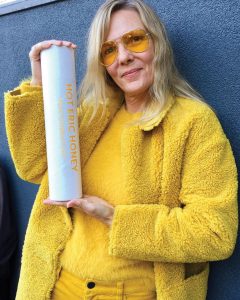
Hot Eric Honey began out of a desire to make something nourishing, healthy, and delicious. When Molly Munster’s daughter contracted a medical condition in 2012, Munster started incorporating healthier options into her family’s diet. Munster resisted the idea that healthy food has to taste poorly, and instead began to find delicious ways to support gut health and anti-inflammation. Pretty soon, she started experimenting with mixing local honey with spices, like turmeric, and Hot Eric Honey was born.
Munster did not have a business approach when she started Hot Eric. “I started [Hot Eric Honey] through love and my intent was to offer something up to my family and my community and my loved ones that I really believe in. It wasn’t money motivated… I’m not a businesswoman, but I’m learning how to be.” Part of that learning journey involves harnessing the power of marketing and social media. Munster spent months sending random direct messages to potential customers over Instagram. She wasn’t sure anyone would even give Hot Eric a second thought, until she received an email from Goop, Gwyneth Paltrow’s health and lifestyle blog, notifying Munster that Hot Eric had been chosen for their Winter 2020 Gift Guide.
Munster celebrated this milestone, saying, “That magical little piece will potentially hold my business together through the pandemic! I want to reach as many people as I can, and this is a golden opportunity.” While she’s uncertain how this newfound exposure will affect her brand, she’s optimistic. “I think it’s a benefit that I actually have more of a beginner’s mind in this world instead of knowing what other people have done or what I should do next. I just go with my gut, my intuition, my heart.” Munster often refers to her product as a “hug in a mug.” And that’s exactly what she set out to do with Hot Eric Honey: provide a little more love to the world.


